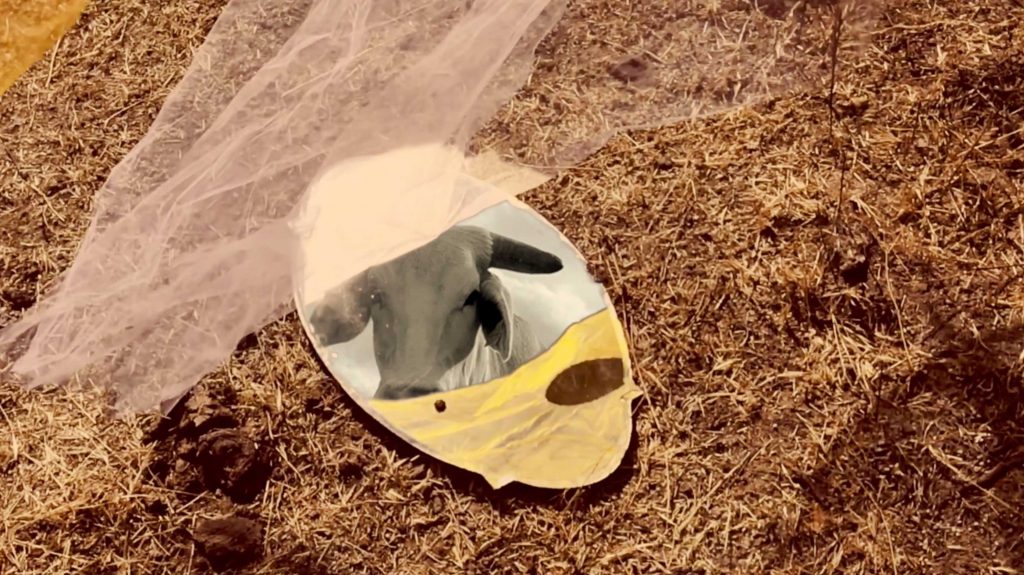
Ego Nidra
Ego Nidra is an experiential, experimental audiovisual art film which acts as a sort of visual guide as viewers embark on a journey to ultimately achieve ‘Ego Nidra’. Nidra being the Sanskrit word translating literally to ‘sleep’, viewers are encouraged to collectively put their ego’s to rest, allowing for deeper self-examination impacts daily life. Approached as a sort of satire on guided meditation, Ego Nidra’s ‘guides’ are the voices of 6 different ‘women’, and/or, google translate ‘bots’ speaking english with accents ranging from the US, Norway, India, Mexico, France, and Germany. Here we speculate a future where ‘spiritual leaders’ don’t actually have a spirit, yet ‘belong’ to actual cultures. By replacing a human voice with a female robot Ego Nidra also questions the role of the ego amongst spiritual leaders themselves, which who are we kidding— are predominately male. As illustrated in the character of Bhagwan, or Osho, in the popular netflix series Wild Wild Country even spiritual leaders are not free from getting caught up in power, greed, and self importance.
Ash Austin (US)
Ash Austin is a contemporary artist and designer based between Mexico City and New York. Austin received her Bachelor’s of Fine Art in Fashion Design from SCAD where she was mentored by CFDA award-winning designer Chris Benz and participated in portfolio reviews by Andre Leon Tally. Austin sold her thesis collection with Coppenhagen based company MUUSE which debuted her collection in its showrooms in both Denmark and Sweden. In 2014 Austin co-founded luxury sustainable brand Behno, which won the FGI’s Rising Star in Accessories award in 2019. The brand was chosen for Eco-Age’s Commonwealth Fashion Exchange where Austin designed an evening look in collaboration with artisans from the Commonwealth which was presented in Buckingham Palace alongside other designers such as Stella McCartney and Burberry. Her experience building brands from the ground up from full RTW and leather good collections, branding development/core values, to sustainable supply chain development led her to spend one quarter of her year in India for 6 years working intimately with partner factories whilst building the company’s own ethical factory on an ashram in partnership with a non-profit. After 10 years promoting the movement of Slow Fashion, working to improve the overall ethics in the sourcing, making, buying, and selling of products Austin noticed a disconnect— that most consumers had fallen victim to excessive advertising of cheap clothing made in poor conditions resulting in addictive and excessive buying and throwing- 50 pounds on average a year to be exact. This vicious cycle has made fashion the second most polluting industry after oil. With the climate crisis at hand Austin is exploring one very important part of this all- us. And she’s doing it through art. Austin left her full-time role in 2019 to pursue a career in art that informs, questions, and speculates what motivates us to consume. She is now based between Mexico City and New York.




